Animals
-
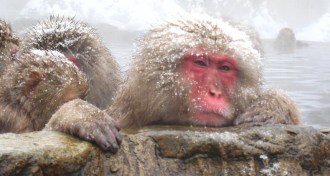 Animals
AnimalsEight ways that animals survive the winter
Migrating to a warmer place is just the start when it comes to finding ways to stay toasty as temperatures drop.
-
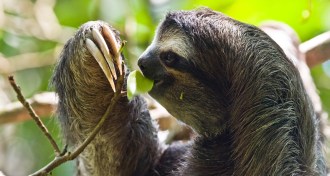 Animals
AnimalsSloths, moths, algae may live in three-way benefit pact
Insects and green slime may justify the slow mammal’s risky descent from trees.
By Susan Milius -
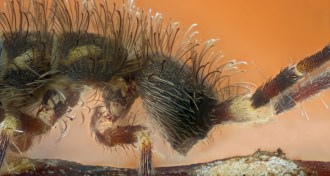 Animals
AnimalsSperm on a stick for springtails
Many males of the tiny soil organisms sustain their species by leaving drops of sperm glistening here and there in the landscape in case a female chooses to pick one up.
By Susan Milius -
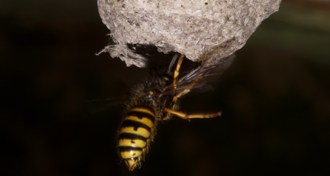 Animals
AnimalsInsect queens sterilize workers with similar chemical
When exposed to a form of saturated hydrocarbons that mimicked the queen’s scent, the worker insects’ ovaries degraded.
-
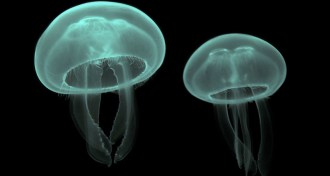 Animals
AnimalsJellyfish bloom in spring when winter ‘timer’ dings
The coordinated appearance of the adult form of the animal is the result of a metamorphosis hormone that accumulates during winter months.
-
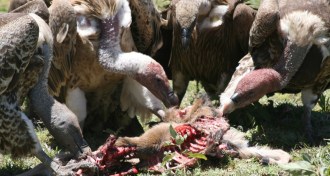 Animals
AnimalsAfrican vultures follow the dead, not the herd
Wildebeest may be numerous, but they’re not attractive to carrion-eating birds unless they’re about to die.
-
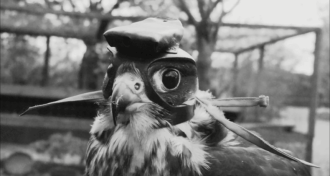 Animals
AnimalsHead cam shows how falcons track prey
Falcons use motion camouflage to capture flying prey, a new study shows.
-
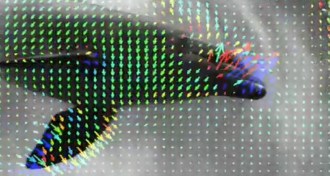 Animals
AnimalsSwimming dolphins don’t need to cheat
Dolphins swimming through bubbles burst old notion of underpowered muscles.
By Susan Milius -
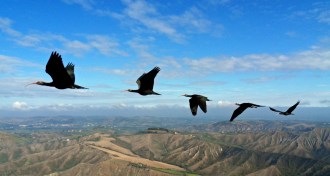 Life
LifeV-flying birds pick efficient flapping pattern
Ibises time their flaps to catch a boost from a neighbor’s wing.
By Susan Milius -
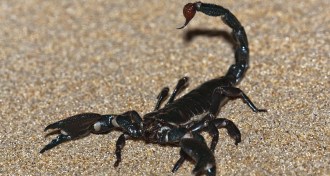 Genetics
GeneticsScorpion’s sting evolved from insects’ defensive proteins
With a single genetic mutation, an insect’s defensive proteins can be transformed into a toxin that gives scorpions their signature sting, a new study shows.
-
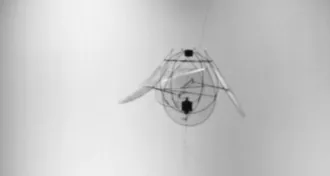 Tech
TechJellyfish-like flying machine takes off
Mimicking sea creatures instead of insects leads to better hovering, scientists find.
-
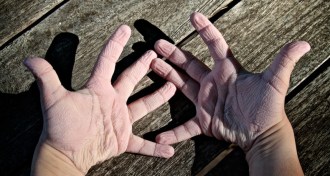 Animals
AnimalsWrinkle arises in soggy hand studies
An experiment bucks earlier finding that ridges help fingers grasp.
By Beth Mole